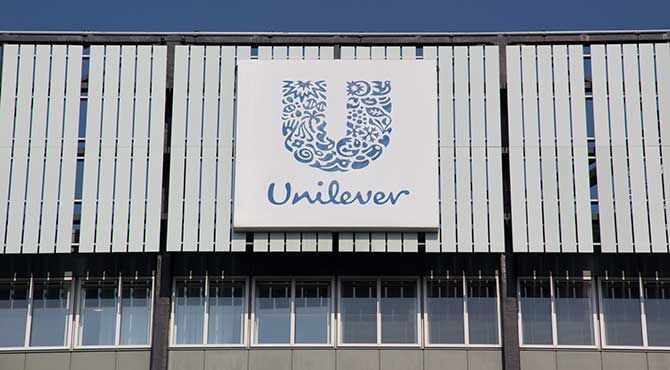Shareholders force Unilever to drop Dutch move
In a move seen as a major boost to the post-Brexit standing of the City of London, consumer goods giant Unilever has abandoned plans to establish a unified headquarters in Rotterdam.

 5 October 2018
5 October 2018Opposition to the move
However, opposition to the plan came from major shareholders - including Royal London, Columbia Threadneedle, Legal & General Investment Management, Aviva Investors, Lindsell Train, M&G Investments and Brewin Dolphin - who feared they would be forced to sell shares if the firm left London and, consequently, lost its listing on the FTSE 100 index.Shareholders also voiced concerns over the Dutch tax regime and the fact that it made no sense for such a major company, which employs almost 170,000 people worldwide making products such as Ben and Jerry's ice cream, Marmite and Lipton tea, to abandon a 'blue chip' trading centre like London in favour of a relatively minor market in Rotterdam.On Friday, Unilever bowed to the pressure and announced it was abandoning the plan. "We have had an extensive period of engagement with shareholders and have received widespread support for the principle behind simplification," said in a statement."However, we recognise that the proposal has not received support from a significant group of shareholders and therefore consider it appropriate to withdraw."
Aiming to simplify company structure
Marijn Dekkers, Unilever's outgoing chairman, insisted that simplifying the company's structure remained in the firm's best interests. "Unilever has built a long track record of consistent and competitive performance," he said."The board continues to believe that simplifying our dual-headed structure would, over time, provide opportunities to further accelerate value creation and serve the best long-term interests of Unilever."The board will now consider its next steps and will continue to engage with our shareholders. We will proceed with the plan to cancel the NV preference shares, further strengthening our corporate governance."London remains a great city in which to do business
Sadiq Khan, London's mayor, welcomed the Unilever decision to keep its HQ in London as "great news", adding: "Despite Theresa May's appalling mishandling of the Brexit negotiations, the capital will always be one of the best cities in the world in which to do business."The Investment Association, a trade body representing UK fund managers, commented: "The feedback from many of our members has been that there was no compelling reason for shareholders to accept the proposed simplification in this form."They did not believe it would be in the long-term interests of their clients, and would have resulted in many shareholders being forced to sell their shares."We welcome the fact that Unilever has listened to the feedback from their shareholders and not pushed ahead with their plans. We look forward to engaging with the company on their future plans."The power of shareholders
Russ Mould, investment director at AJ Bell, said Unilever’s retreat illustrated the power of institutional investors and was likely to result in the company's board coming under "severe scrutiny".He said: "Today’s climbdown from Unilever over a plan which would have necessitated its exit from the FTSE 100 is an example of the power institutional investors can wield when they act in concert with one another."This brings into the question the credibility of Unilever’s insistence that the vast majority of shareholders were ‘fully supportive’ of its proposals ahead of the vote deadline in the UK and the Netherlands later this month."Abandoning its dual UK-Dutch stock market listing and moving its HQ to Rotterdam would have made Unilever, one of the London market’s leading lights, ineligible for the FTSE and many institutions complained they would have been forced sellers of the shares."The episode looks to have been badly mismanaged and the position of chief executive Paul Polman and the rest of the board is likely to come under severe scrutiny."For related news and features, visit our Brexit section.Subscribe to Relocate Extra, our monthly newsletter, to get all of the international assignments and global mobility news.
Relocate’s new Global Mobility Toolkit provides free information, practical advice and support for HR, global mobility managers and global teams operating overseas.
 Access hundreds of global services and suppliers in our Online Directory
Access hundreds of global services and suppliers in our Online Directory
©2026 Re:locate magazine, published by Profile Locations, Spray Hill, Hastings Road, Lamberhurst, Kent TN3 8JB. All rights reserved. This publication (or any part thereof) may not be reproduced in any form without the prior written permission of Profile Locations. Profile Locations accepts no liability for the accuracy of the contents or any opinions expressed herein.






























